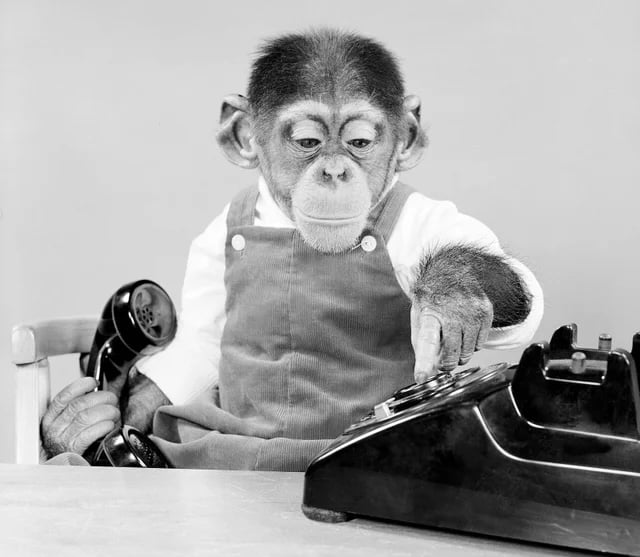Scientifically speaking, the DNA of humans and chimpanzees are almost identical, 98.7% to be exact. They are knowing to be our closest living relatives. If we were to raise a chimpanzee like how we raised a human child, will they be as intelligent as we are?
In 1931, a psychologist adopted a Chimpanzee and raised it with his own son. This was to observe if the Chimp would grow up to behave like a human. The Chimp hit a cognitive wall, and there was no amount of training that could help her improve.
Who is Winthrop Kellogg?
Winthrop Niles Kellogg is an American psychologist who was interested in the field of behavioral psychology. He was born in 1898 in New York. By 1916 he started his undergraduate study at the Cornell University, this was just a year before World War I began. He served at the US Army Air Service for about two years and completed his studies at the Indiana University after. He married Luella Agger in 1920, and they had two children; Donald and Shirley Mae.
Kellogg finished his degree in Philosophy and Psychology by 1922. He received a Master’s degree in psychology at the Columbia University by 1927. After this, he wrote and co-authored several papers from 1928 to 1931. (Source: The Psychological Record)
The Ape and the Child Experiment
By June 26, 1931 Kellogg and his wife welcomed a baby chimpanzee into their home. They planned to raise the Chimp along with their own son. The idea of the experiment was to see how far can a chimp grow up to think or behave like a human.
This experiment was actually well thought of. Kellogg had always dreamed about conducting this kind of study. The fascination started when he learned about wild children who were raised without human contact. Since leaving a child in the wilderness would be unethical, so he opted to reverse the scenario and bring an infant animal to civilization.
The experiment lasted for 9 months, and the Chimp; Gua and their son; Donald were observed for 12 hours a day. The couple raised the two babies exactly the same. (Source: The Smithsonian Magazine)
Their notes read:
Experiments done include blood pressure, memory, body size, scribbling, reflexes, depth perception, vocalization, locomotion, reactions to tickling, strength, manual dexterity, problem solving, fears, equilibrium, play behavior, climbing, obedience, grasping, language comprehension, attention span, and others.
Winthrop Niles Kellogg
How Did Gua Compare to Donald?
For some time, Gua actually excelled to the tests that were given to her. But at a certain point, she hit a cognitive wall, that no amount of training could help her improve. Genetically speaking, being a chimpanzee, she would still remain as a chimpanzee. (Source: The Smithsonian Magazine)
What was the Final Verdict of the Experiment?
The experiment mysteriously ended all of a sudden. There were several speculations on why the Kelloggs discontinued the study, but the author of The Psychological Record wrote:
We are told only that the study was terminated on March 28, 1932, when Gua was returned to the Orange Park primate colony through a gradual rehabilitating process. But as for why, the Kelloggs, who are so specific on so many other points, leave the reader wondering.
The Psychological Record
One of the reasons that may explain the abrupt end of the experiment was that Gua was becoming stronger and harder to manage, that the couple were starting to fear that she would harm her human brother. Another reason was the fact that Donald began imitating Gua’s behavior, causing a language retardation. (Source: The Smithsonian Magazine)
Watch clips of the study here.
